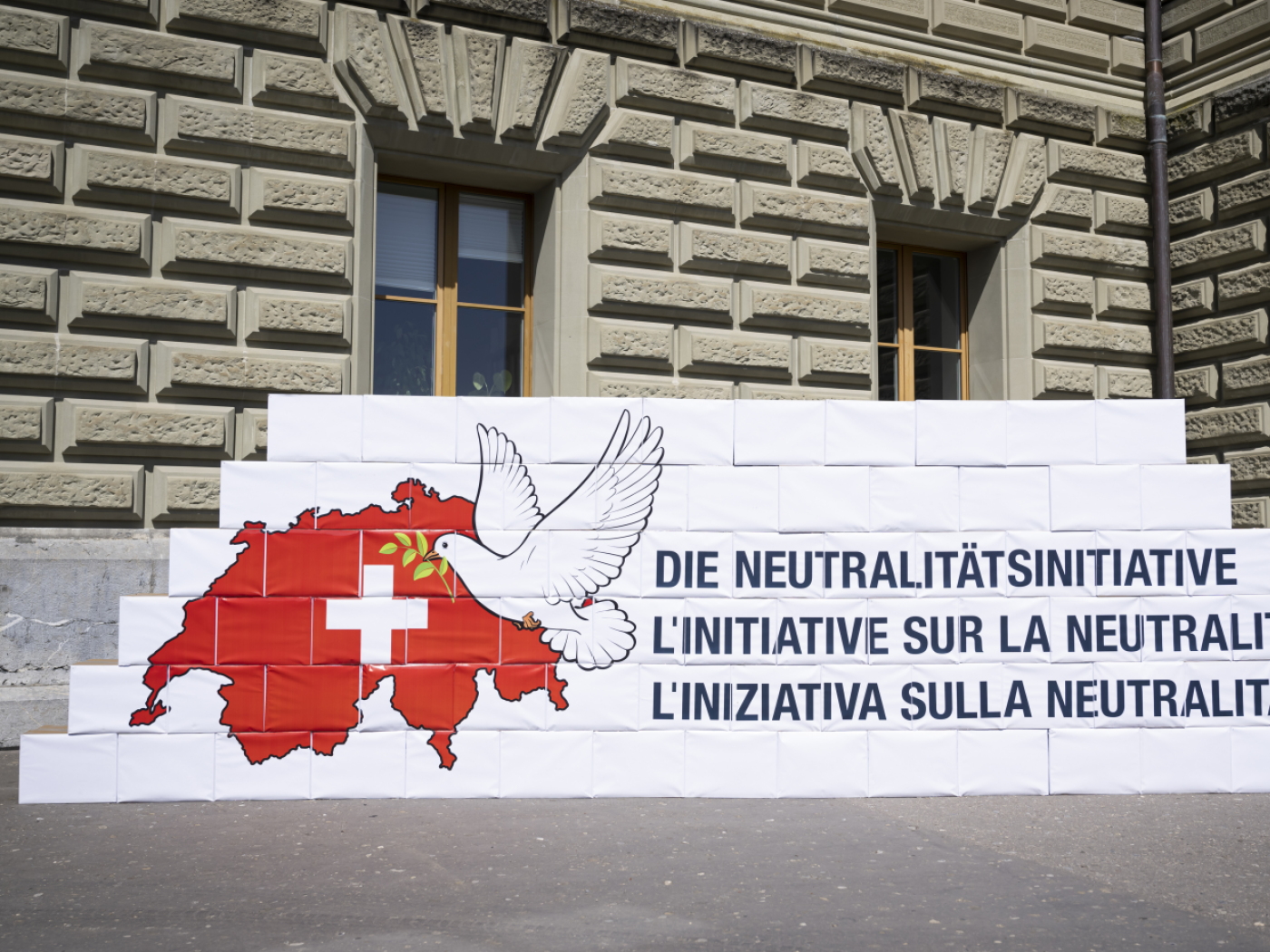
Is racism a problem in Switzerland? A look at the latest numbers
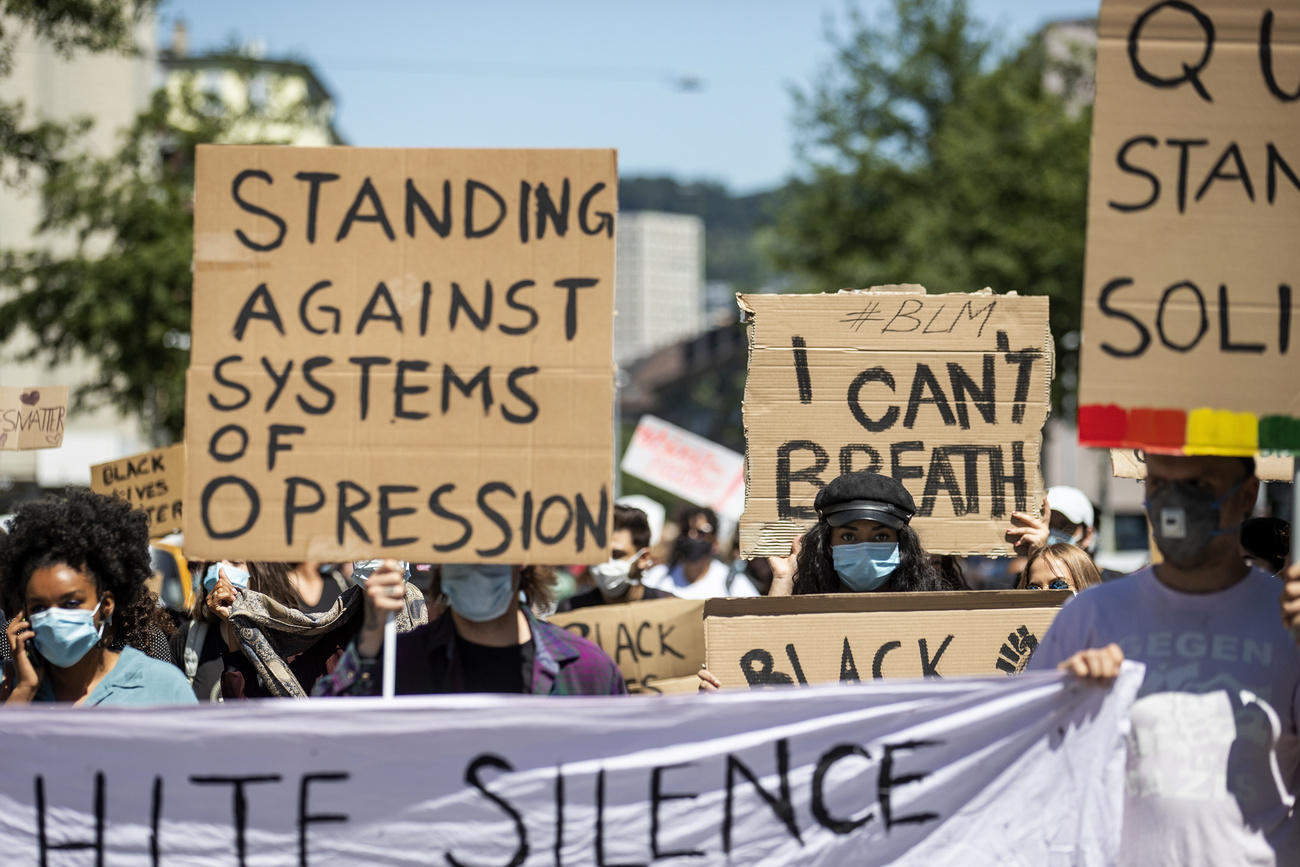
The anti-racism demonstrations currently seen in the US and around the world have found echoes in Switzerland, where thousands have protested in the streets and thousands more on social media. Though Switzerland has not witnessed such levels of racial tensions, the Alpine nation nevertheless harbours widespread xenophobia towards foreigners, statistics show.
Racial profiling
According to Kanyana Mutombo, secretary-general of CRAN, an organisation that fights anti-Black racism, racial profiling exists in Switzerland: Black residents are targeted more often for searches and identity requests from police.
“Each of us has had a bad experience with the police,” Mutombo recently told Swiss public radio, RTS. Several other young men told RTS that “we have to show our hands are clean in everything we do.”
In the French-speaking canton of Vaud, there have been several recent cases of black suspects dying during or following an encounter with the police, including a Nigerian man who died in February 2018 in Lausanne after being immobilised facedown in a prone restraint position.
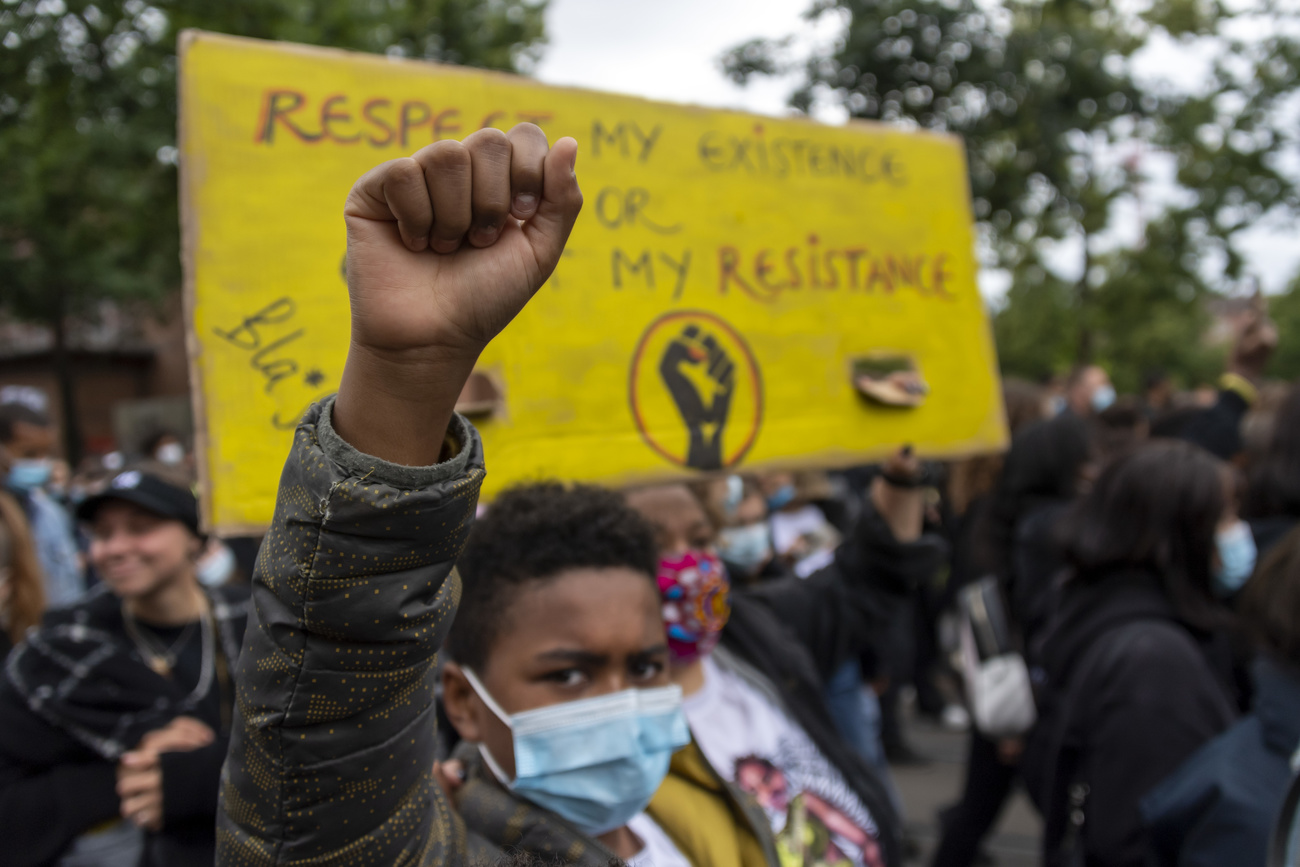
More
‘People of colour always have to look over their shoulder’
Contacted by swissinfo.ch, Alma Wiecken of the Swiss Federal Commission against Racism (EKR) and Dominic Pugatsch of the foundation against racism and antisemitism (GRA) agreed that the situation is not comparable to the US. But “that doesn’t mean that we shouldn’t work on tackling the problem,” Wiecken says. Even if many cases are purely interpersonal, Switzerland is not immune to structural and institutional racism.
Rise in reported cases
Annual reports by the EKR collect racist incidents of all types that have been reported to some 20 counselling centres in Switzerland. And though their figures are very likely lower than the reality, they do allow an overview of what kind of incidents are taking place.
Last year, 352 cases were reported in the country, a rise of 30% in just a year. Likewise, the proportion of the population that has reported being targeted by racial discrimination has increased in recent years, from 10% in 2014 to almost 17% in 2018, according to the Federal Statistical Office. And more than just proof of increasing cases, these statistics show that victims are coming forward more often.
Some 20 incidents (almost 7%) of the total reported last year were linked to racial profiling. Almost 100 happened within the framework of a public body, including over a third in public administration. Almost a third were linked to police incidents.
Housing and employment
Taking all cases into account, however, the majority happen in private settings and in public areas. The experts interviewed by swissinfo.ch say that this is also where signs of systemic racism can be found: when people are subject to different treatment both socially and on the job market, when they find it difficult to secure a place to live, or when they are underrepresented in bodies such as public administration and the justice system.
“In Switzerland, a black person or someone with a foreign-sounding name can more often have a tough time finding accommodation or a job,” says Alma Wieken. For example, a study by the Federal Housing Office, published last year, showed that the response rate for apartment viewings was less than 5% for people with a Kosovar or Turkish name.
A University of Neuchâtel study published earlier this year also showed that Swiss people with a foreign background have to send 30% more job applications in order to get invited to an interview; Balkan-sounding and African surnames are most affected.
In the EKR report, too, people with an African background face the most discrimination, representing a third of the overall victims. They are followed by people originating from Kosovo, Turkey, or Serbia (31%).
However, discrimination is not directly linked to nationality, nor to citizenship status: it is grounded on the person’s foreign origins, whether real or imagined. In 2019, over a quarter of victims of discrimination were of Swiss nationality.
Latent xenophobia
The majority of cases reported in 2019 were about unequal treatment, or insulting or aggressive language. For Dominic Pugatsch of the GRA, however, these reported cases are just the tip of the iceberg. He says a more latent xenophobia exists which can impact all communities and be seen in small daily interactions.
A young black woman, also interviewed by RTS, said something similar – for her, racism was “indirect”, she said. “I’ve had the experience of sitting down in the train, and the person facing me got up and left,” she said. Many such incidents don’t show up in the statistics.
The EKR report, meanwhile, says that general xenophobe towards minorities was at the root of most such incidents, rather than more specific racism towards black or Muslim people. Pugatsch reckons this is a typical feature of racism in Switzerland. “Unfortunately, there is a daily racism and “othering” of minorities, he says. In such cases, it’s a bit like ‘us against the rest’”.
He nevertheless hails a strong political desire not to allow xenophobia to flourish. “The question is taken very seriously here. We have a federal commission against racism, we have statistics, ongoing training for police officers to combat racial profiling… We don’t want a situation like in the US.”
Wiecken, from the EKR, says that an increase in discussions and debates about racism count as progress. “This means we are starting to understand it’s not just a problem of minorities, but a problem of society as a whole”.
Translated from French by GW&DOS

In compliance with the JTI standards
More: SWI swissinfo.ch certified by the Journalism Trust Initiative





































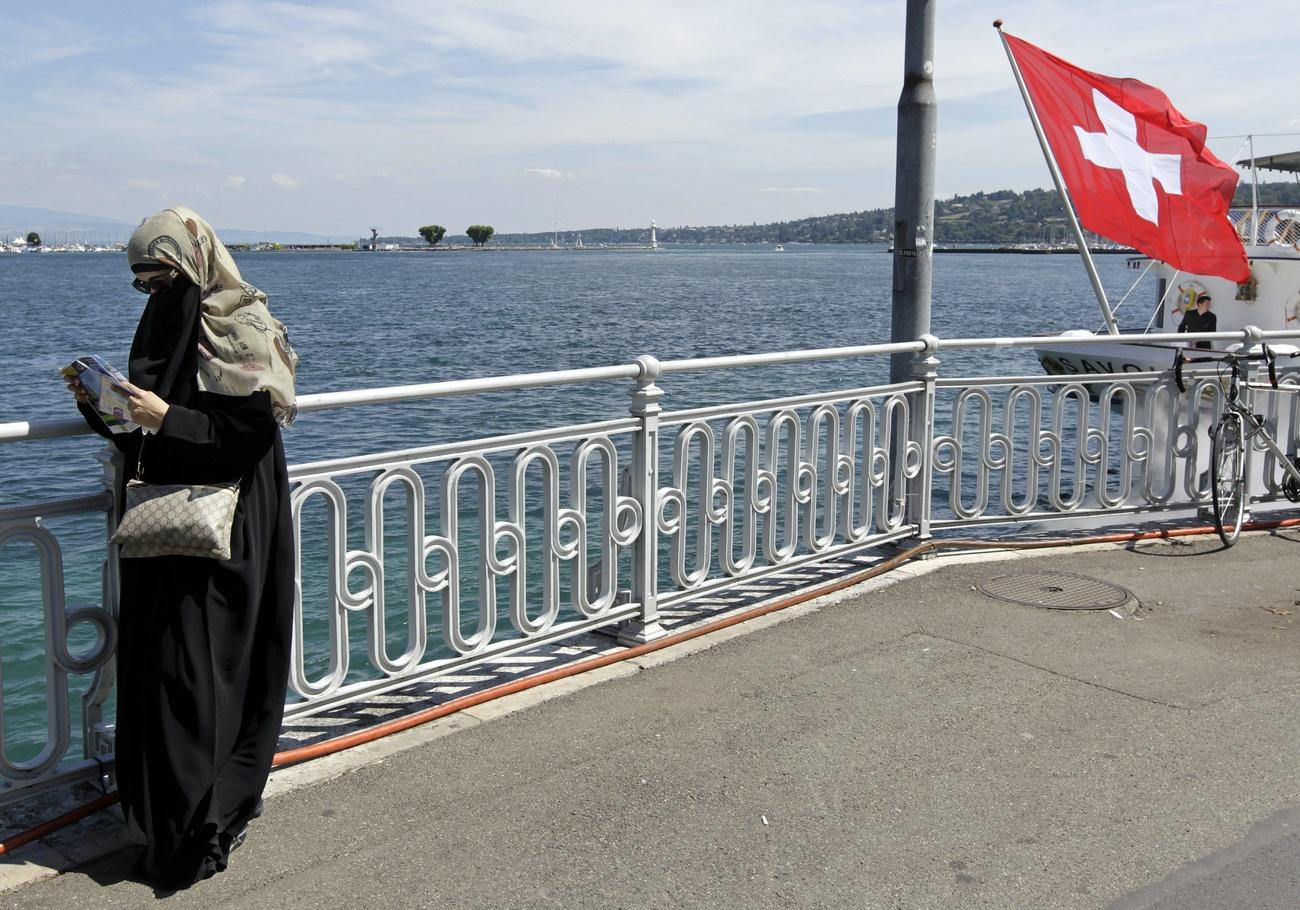
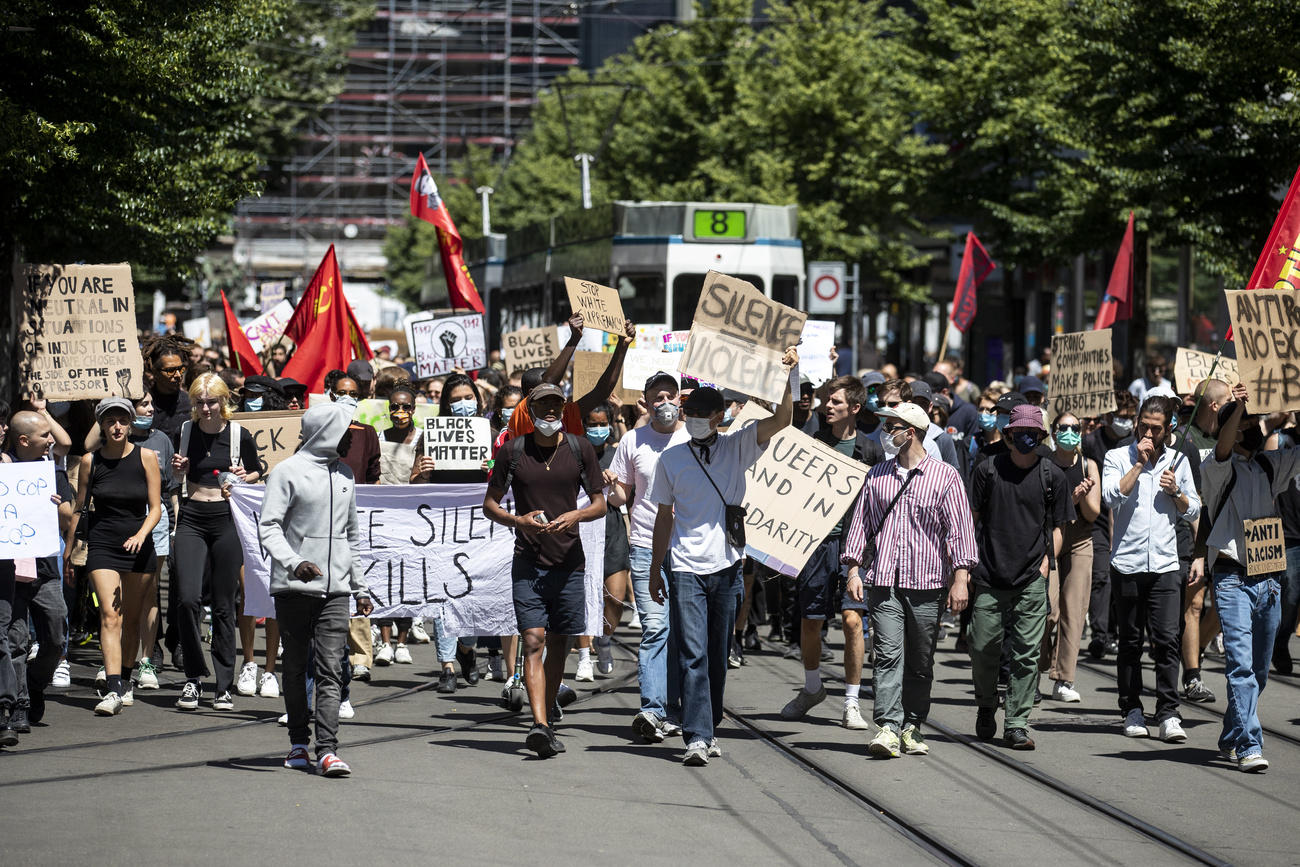
You can find an overview of ongoing debates with our journalists here . Please join us!
If you want to start a conversation about a topic raised in this article or want to report factual errors, email us at english@swissinfo.ch.